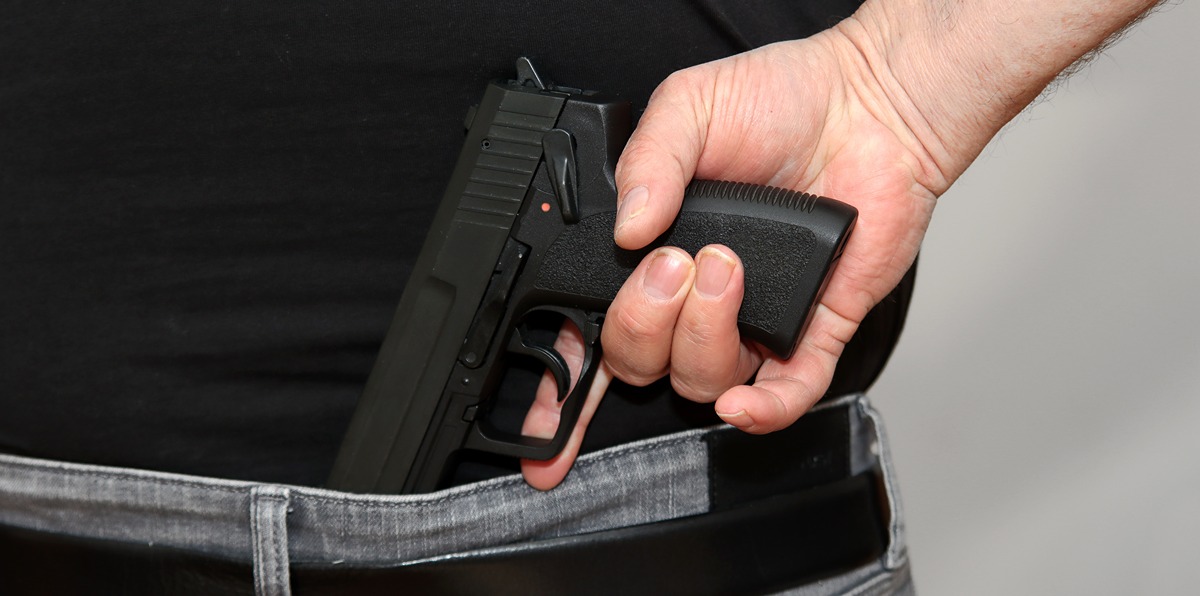Aggravated Assault with a Deadly Weapon Charge
We’re Here to Help You – Talk to Our Legal Team Immediately
Facing aggravated assault with a deadly weapon charges in Arizona is a serious matter that can lead to years in prison, steep fines, and long-term consequences on your criminal record. Under Arizona law, an aggravated assault charge isn’t just a more serious version of simple assault—it involves factors that increase the severity of the offense, such as the use of a deadly weapon or dangerous instrument, causing serious physical injury, or targeting certain protected individuals like police officers.
If you’ve been arrested for aggravated assault in Phoenix or anywhere in Maricopa County, you’re likely facing a felony charge that could result in a prison sentence, even if no one was seriously injured. This is where experienced legal representation becomes critical. Knowing what you’re up against—and what defenses are available—can help you make informed decisions and avoid costly mistakes.
Table of Contents
- Simple Assault vs. Felony Aggravated Assault
- Understanding Aggravated Assault with a Deadly Weapon in Arizona
- When Assault Becomes Aggravated: Arizona Law Explained
- What Happens After an Arrest for Assault with a Deadly Weapon?
- Penalties for Aggravated Assault with a Deadly Weapon
- Defense Strategies Used by a Criminal Defense Attorney
- Real-World Examples of Aggravated Assault Charges in Phoenix
- FAQs About Aggravated Assault with a Deadly Weapon
- Key Points to Remember
- How Guardian Law Group and Christian Lueders Can Help
In this article, we’ll explain what constitutes aggravated assault under ARS 13-1204, how prosecutors approach these cases, what penalties apply, and how an experienced assault attorney like Christian Lueders at Guardian Law Group can help you fight the charges. Whether you’re already charged or under investigation, this guide provides the knowledge you need to take the next step.
Follow us On
Free Case Evaluation
Free & Confidential Consultation
Don’t Wait – Call Us Now to Speak with an Phoenix Criminal Defense Lawyer

►Arizona Assault Laws: Simple Assault vs. Felony Aggravated Assault
In the State of Arizona, assault doesn’t just mean punching or hitting someone. The law casts a much wider net. Under ARS § 13-1203, assault can happen in three ways: by causing any physical injury to someone, by making another person fear they’re about to be hurt, or by touching someone in a way that’s meant to injure, insult, or provoke them. Any one of these actions can result in an assault charge.
Most of the time, these are charged as misdemeanors—what many people call simple assault.
That might involve a minor fight where someone ends up with a bruise, yelling at someone in a threatening way, or even something like pushing or poking someone in anger. While still serious, misdemeanor assault usually comes with less harsh penalties—possibly probation, a fine, or some jail time under six months.
However, when certain conditions are present, Arizona law increases the severity of the charge. This is when an assault becomes “aggravated.” One of the biggest triggers is the use of a deadly weapon or dangerous instrument, like a firearm or knife. Other factors, like causing serious physical injury or assaulting a police officer, can also elevate the charge to felony assault.
What starts as a basic assault can quickly turn into a felony under Arizona law if one of these aggravating factors is involved. And once that happens, the stakes rise fast. The possible penalties, the prosecutor’s approach, and the overall outcome all shift dramatically. That’s why it’s so important to understand the difference between simple and aggravated assault—because the way the assault is committed, and who is involved, can completely change the direction of your case.

► Understanding Aggravated Assault with a Deadly Weapon in Arizona
Under Arizona Revised Statute §13-1204, a person commits aggravated assault when they commit assault under specific aggravating circumstances. One of the most common aggravators is the use of a deadly weapon or dangerous instrument. Assault, at its core, is defined as intentionally causing physical injury, placing someone in fear of injury, or touching them with intent to injure, insult, or provoke.
Aggravated assault with a deadly weapon occurs when a person uses or threatens to use an object that can cause death or serious injury. Common examples of deadly weapons in Arizona include firearms, knives, broken bottles, or even vehicles when used aggressively.
This charge significantly increases the potential penalties compared to simple assault. While a misdemeanor assault might result in probation or short jail time, aggravated assault is almost always a felony and can result in years in prison.
► When Assault Becomes Aggravated: ARS 13-1204 Law Explained
According to ARS 13-1204, an assault becomes aggravated under the following circumstances:
- The person uses a deadly weapon or a dangerous instrument
- The assault causes serious physical injury
- Assault on a police officer, firefighter, teacher, or other civil servant
- The victim is restrained or bound
- The assault occurs during the commission of another felony
- The person commits assault after entering someone’s home with intent
If a person commits assault and uses a deadly weapon, such as pointing a gun at someone or swinging a bat, it is considered aggravated assault.
Even if no injury occurs, the presence and use of a weapon automatically elevate the charge.
Arizona courts classify aggravated assault charges based on the severity of the circumstances. For example, an assault causing serious injury or involving a deadly weapon is generally charged as a Class 3 felony, while assault against a police officer may be a Class 2 felony.

► What Happens After an Arrest for Assault With Deadly Weapon?
If you’re arrested for assault with a deadly weapon in Phoenix or elsewhere in Maricopa County, you will likely be held in custody until a judge reviews your charges. A judge will determine bail (if any), and the prosecution may begin building its case quickly. The prosecutor will evaluate police reports, witness statements, and any physical evidence, like video or the weapon itself.
It’s common for prosecutors to file felony charges immediately, but sometimes they begin with a pre-charge investigation. If you’re contacted by police and suspect you’re under investigation, it’s critical to speak with a criminal defense attorney before making any statements. What you say early on can be used against you later.
Once charges are filed, you’ll go through arraignment, pre-trial hearings, and potentially a trial. Throughout this process, your defense attorney can negotiate with the prosecution, challenge evidence, and advocate for your release or reduced charges.
► Penalties for Aggravated Assault With a Deadly Weapon
Aggravated assault charges in Arizona carry harsh penalties. For a first-time offense involving a deadly weapon, the crime is typically classified as a Class 3 felony. Sentences depend on the presence of aggravating factors and prior criminal history.
Repeat offenders or those with prior violent felonies can face longer terms under Arizona’s dangerous offender statutes.
Here’s a breakdown of potential penalties:
| Charge Level | Classification | Prison Sentence | Relevant Statute |
| Aggravated Assault w/ Deadly Weapon (First Offense) | Class 3 Felony | 5 to 15 years | ARS 13-1204 |
| Aggravated Assault Causing Serious Physical Injury | Class 3 Felony | 7 to 21 years | ARS 13-1204 |
| Assault on Police or Public Safety Officer | Class 2 Felony | 10 to 35 years | ARS 13-1204 |
| Repeat Offender With Prior Felonies | Enhanced Sentencing | Up to life in prison | ARS 13-706 |
► Defense Strategies Used by a Criminal Defense Attorney
When facing aggravated assault with a deadly weapon charges, a solid defense is key. Christian Lueders at Guardian Law Group brings a deep understanding of how these cases are prosecuted because he used to prosecute them himself as a former felony prosecutor. Now, he uses that insight to fight for your defense.
Common defenses for aggravated assault include:
- Self-Defense or Defense of Others
If you used force to protect yourself or another person from harm, your actions may be legally justified. - Lack of Intent
Aggravated assault requires a certain mental state. If the prosecutor cannot prove intent to commit the assault, the charges may not hold. - No Use of a Deadly Weapon
A defense attorney can argue that the object was not a deadly weapon or a dangerous instrument under Arizona law. - Mistaken Identity or False Allegations
In some cases, the accused is wrongly identified or falsely accused by a biased witness or alleged victim. - Illegal Search or Violation of Rights
If evidence was obtained through an unlawful search or if your rights were violated (such as Miranda rights), that evidence may be suppressed.
Christian Lueders has successfully defended aggravated assault cases by challenging witness credibility, exposing investigative flaws, and negotiating reduced charges for clients.
► Real-World Examples of Aggravated Assault Charges in Phoenix
Example 1: A Phoenix man was charged with aggravated assault after allegedly swinging a crowbar during a heated argument in a parking lot. Although no one was injured, the crowbar was considered a deadly weapon. Christian Lueders argued that the object was never used in a threatening manner and that the client acted in defense of property. The charge was reduced to a misdemeanor with no jail time.
Example 2: A woman in Tempe was accused of aggravated assault after pointing a firearm during a road rage incident. The alleged victim fled, and no shots were fired. By challenging the reliability of the eyewitness and showing a lack of intent to use the weapon, the case was dismissed.
These examples show how charges in Arizona can escalate quickly and how a strong defense can make a difference.
► FAQs About Aggravated Assault With a Deadly Weapon
1.) What is considered a deadly weapon in Arizona?
According to Arizona’s aggravated assault law, a deadly weapon is any object designed for lethal use, such as a firearm. However, other objects like baseball bats or vehicles may be considered dangerous instruments depending on how they’re used.
2.) Can I be charged even if no one was hurt?
Yes. The use or display of a deadly weapon alone is enough to elevate an assault to aggravated assault under ARS 13-1204.
3.) What makes an assault “aggravated”?
Aggravating factors include the use of a deadly weapon, serious physical injury, targeting certain public workers, or committing the assault during another felony.
4.) Is aggravated assault always a felony?
Yes. Aggravated assault in Arizona is classified as a felony. The level depends on the specifics of the case—Class 2 or Class 3 in most weapon-related cases.
5.) Can I get probation if convicted?
Not usually. Aggravated assault with a deadly weapon is classified as a “dangerous offense” and requires mandatory prison time under Arizona sentencing guidelines.
6.) Can the charges be dropped or reduced?
Possibly. An experienced Phoenix criminal defense attorney can negotiate with the prosecutor, challenge evidence, or push for a plea agreement that avoids prison time.
► Key Points to Remember
- Aggravated assault with a deadly weapon is a felony under ARS 13-1204.
- You can be charged even if no one was physically hurt.
- A deadly weapon includes firearms, knives, or objects used dangerously.
- Penalties include mandatory prison time and potential life sentences for repeat offenders.
- A skilled criminal defense attorney can challenge the evidence, assert defenses like self-defense, and fight for a reduced charge or dismissal.

► How Guardian Law Group and Christian Lueders Can Help
When you’re facing aggravated assault with a deadly weapon charges, hiring the right criminal defense attorney can be the most important decision you make. Christian Lueders, founder of Guardian Law Group, has a distinct edge—he’s a former felony prosecutor who knows how the state builds these cases and where they fall apart.
Christian brings years of courtroom experience, strong relationships with Phoenix-area prosecutors and law enforcement, and a reputation for aggressive, strategic defense. Whether it’s challenging the credibility of a witness, negotiating with the prosecution, or fighting your case in front of a jury, he knows how to protect your rights at every stage.
At Guardian Law Group, we offer free consultations, so you can speak directly with an attorney before deciding on your next steps. If you’re under investigation or already charged, don’t wait.
Call (480) 316-4618 or visit our Contact Page to schedule your confidential consultation today.






